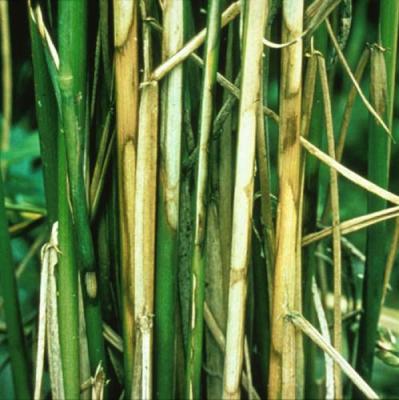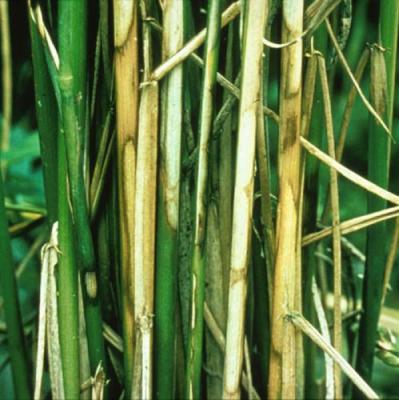

Damping-off diseases
Failure of seedlings to emerge is the most obvious symptom of seed rot and pre-emergence damping off. Examination may reveal a cottony growth of mycelium (mould) in and around seed coats and the emerging seedlings, indicating attack by water mould(s). The growing point or root of germinated seedlings has a dark brown discolouration or rot. The base of the leaf sheath and the roots of emerged seedlings have a similar dark brown or reddish-brown rot. Affected seedlings appear stunted and yellow and may soon wither and die (seedling blight). Water moulds are particularly severe in water-seeded rice culture. In areas where fields are frequently water-seeded, it has become difficult to obtain adequately dense and uniform stands. Seed rots caused by the water moulds Pythium and Achlya, and to a lesser extent by the fungus Fusarium, have been identified as the causes of the problem. These fungi often act as a complex within affected fields.
Symptoms of water mould can be observed through the flood water as balls of fungal strands radiating from seeds on the soil surface. When the water is removed using the critical point method of water-seeding, affected seeds are surrounded by a mass of fungal strands. This results in circular, copper brown or dark green spots on the soil surface, about the size of a penny, with the rotted seed at the centre. The colours of the spots are the result of bacterial and algal growth. Seed rot by water moulds is favoured when the water temperature is unusually high or low. If seedlings are attacked after germination at pegging, seedlings become yellow and stunted and grow poorly.
- Use certified disease-free seeds for planting.
